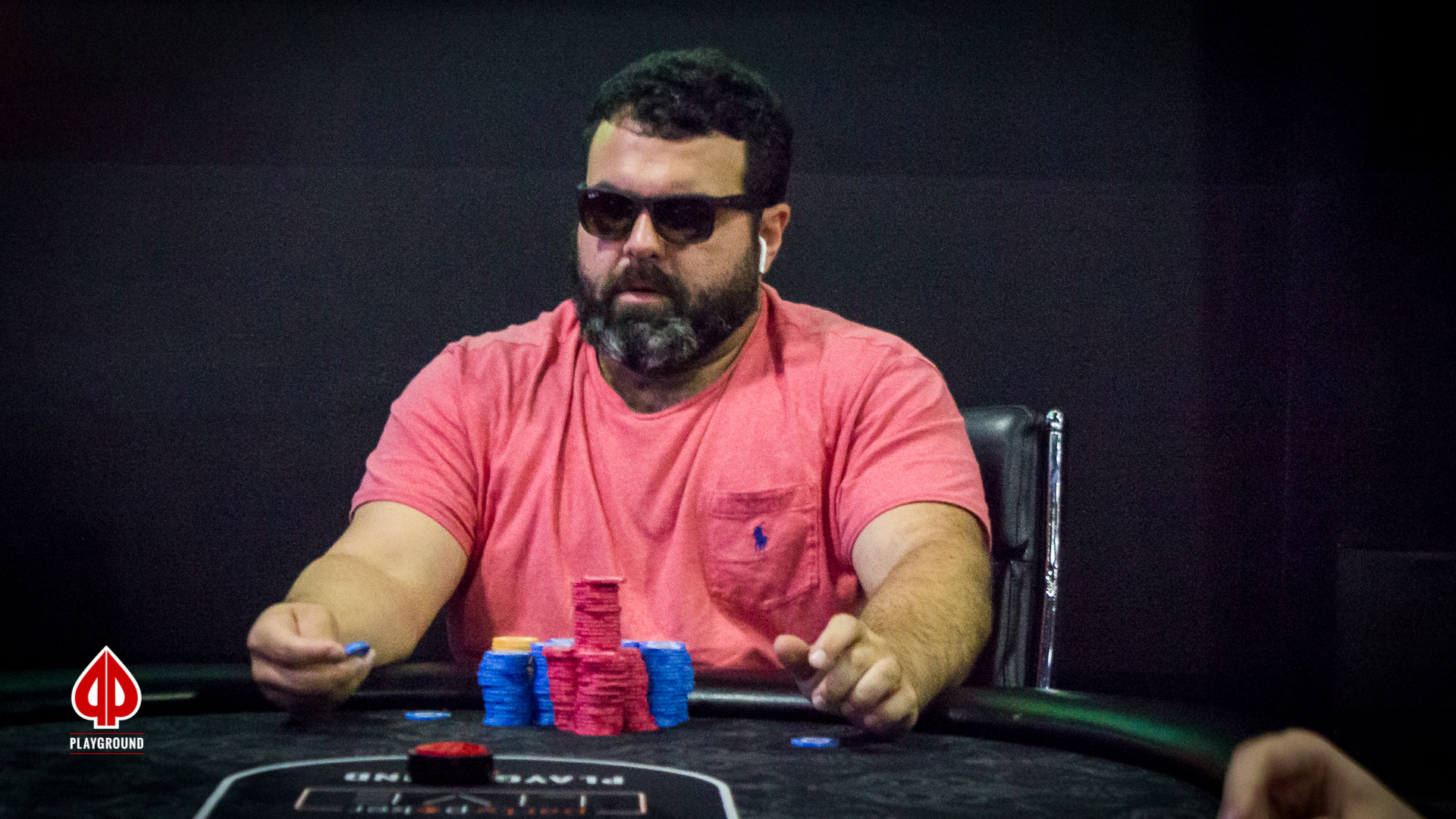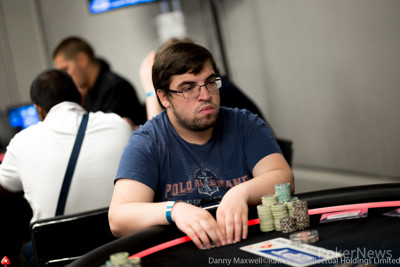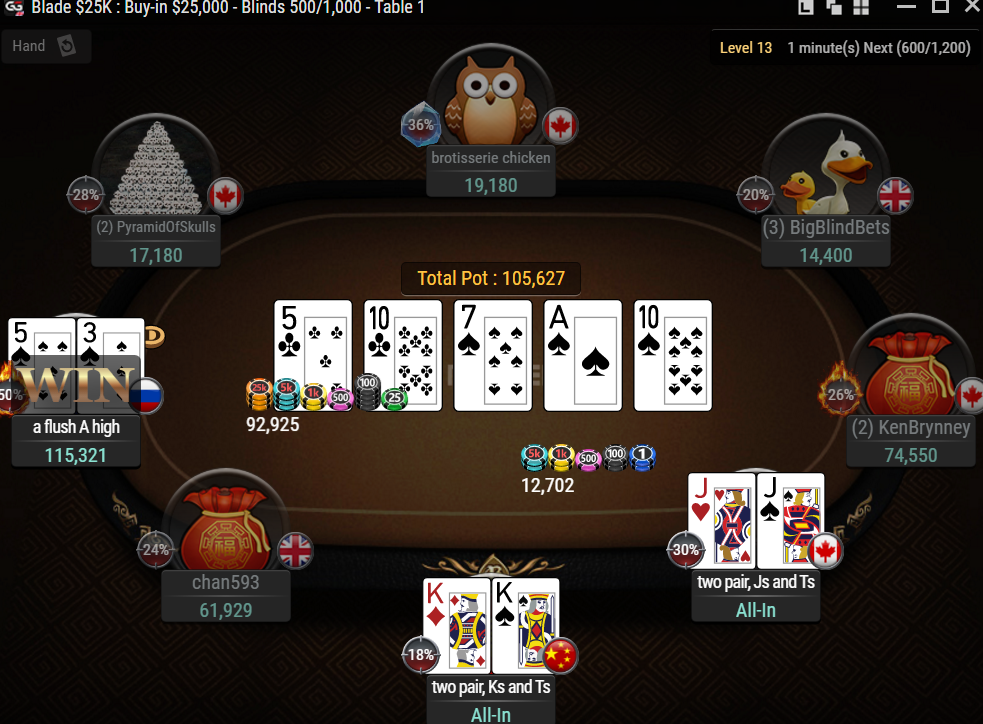Apestyles Poker Name
In This Week’s Episode:
Jon “apestyles” Van Fleet – $97,344. Dan Smyth is a poker media journeyman who politely reminds CardsChat readers that poker is played all around the. The following is a list of nicknames used for playing cards used in most card games which use the standard 52-card pack. Such games usually require the revealing or announcement of held cards, at which point the nicknames may be used.
Jon “apestyles” Van Fleet has long been considered by many to be the greatest online MTT player of all time, and his accomplishments in 2017 only served to cement that legacy.
In 2017 he won the Party Poker Millions Main Event for $1,027,000, the Party Poker Power Fest Main Event for $153,000, and the PokerStars $700 Super-Sized Sunday for over $82,000.
Jon joins Elliot and Adrienne to talk about his incredible year and how you can study under him in his Elevate Group Coaching Program on Max-Value.com.
In This Episode You’ll Learn:
- [3:37] – How on the final day of the Party Poker Millions Jon was able to set aside the enormous amount he was playing for, make peace with whatever happened, all while remaining confident that he was going to win.
- [6:45] – The specific Yoga discipline that high-stakes poker players are using to improve their mental and physical performance.
- [12:13] – Why Jon stopped trash talking other player’s games even though he consistently finds leaks in their games and doesn’t believe anybody is very good.
- [14:20] – The mindset that Jon uses to maintain his passion for improving his game, even after grinding online MTTs for over 13 years.
- [21:14] – Learn about the Elevate Program that Jon runs on Max-Value.com and how you can apply to be a member and learn his system.
Jon “apestyles” Van Fleet
Adrienne “Talonchick” Rowsome:
***If you’ve enjoyed this episode of The Mindset Advantage podcast, please subscribe and leave us a review over on iTunes to help spread the word about the show. Thanks!***
Stop Tilting in Just 7 Minutes?
Tilt happens, even to the best players. If you ever find feelings of tilt creeping into your session, you’ll want a way to stop them ASAP. With the 7 Minute Tilt Buster MP3, you can stop tilt in its tracks and get back to playing your “A Game” right away. Try it for free today! Click here to download
The card game of poker has many variations, most of which were created in the United States in the mid-1900s. The standard order of play applies to most of these games, but to fully specify a poker game requires details about which hand values are used, the number of betting rounds, and exactly what cards are dealt and what other actions are taken between rounds.
Popular poker variants[edit]

The three most popular poker variants are spread in casinos and poker rooms worldwide and can be divided into the following groups:

- Draw poker: Games in which players are dealt a complete hand, hidden, and then improve it by replacing cards. The most common of these is five-card draw.
- Stud poker: Games in which each player receives a combination of face-up cards and face-down cards in multiple betting rounds. The most common of these are five-card stud and seven-card stud. These two variants are further played in other different formats.
- Community card poker: Games in which each player's incomplete hidden hand is combined with shared face-up cards. The most common of these are Texas hold 'em and Omaha hold 'em.
Here are more common rule variations:
- Lowball: The lowest hand wins the pot. There are different rules about whether or not aces count as low, and the effects of straights and flushes. The most common variants are Razz and 2-7 Triple Draw
- High-low split: the highest and lowest hands split the pot. Generally there is a qualifier for the low hand. For example, the low hand must have 5 cards with ranks of 8 or less. In most high-low games the usual rank of poker hands is observed, so that an unsuited broken straight (7-5-4-3-2) wins low (see Morehead, Official Rules of Card Games). In a variant, based on Lowball, where only the low hand wins, a straight or a flush does not matter for a low hand. So the best low hand is 5-4-3-2-A, suited or not.
- Players can pass cards to each other. An example of this would be Anaconda.
- Kill game: When a fixed limit game is played and a player wins two pots in a row, the stakes are doubled. In some split-pot games, a player winning both halves of the pot may also cause a kill. In some variants of Lowball, a player may choose to kill by placing a double bet after seeing his first two cards.
- Wild cards are added. This can range from simply making deuces wild to the 7-card stud variant named baseball.
- A twist round in which players can buy another card from the deck. If a player does not like the purchased card, the player can purchase another one by adding money to the pot. This is sometimes called a 'tittle.'
- A stripped deck may be used. Poker was first played with only 20 cards. In the spirit of poker history, players will sometimes only play with a stripped deck. A popular poker game in Spain is played with cards 8-A. It is played similar to hold'em, except that one card is dealt at a time and a player must use both hole cards.
- Roll your own is played in stud games, and allows the player to determine which of his or her cards are turned up and visible to the other players. In a game like Seven-card Stud, the 'roll' action only applies to the first 3 cards, all of which are dealt face down. Each player then determines which card to expose. Play then continues as with regular Seven-card Stud. But a game like Mexican stud applies the roll option throughout the game. Two cards are dealt face down, and the players roll one card up. The game continues just as in Five-card Stud, except the cards are dealt face down, and each player then decides which of the two down cards is exposed.[1]
Mixed poker games[edit]
Poker can be played in a mixed game format, for example one half-hour of Texas hold 'em followed by one half-hour of Seven-card stud. There are many types of mixed poker games. The most notable mixed poker variation is H.O.R.S.E. poker. H.O.R.S.E. is a mix of Texas hold 'em, Omaha high-low, Razz, Seven-card stud and Seven-card stud Eight-or-better. Each game will usually be played for a fixed number of hands or time and then the players will move on to the next game.
Other mixed games include:
- H.O.S.E. – same as H.O.R.S.E., except without Razz.
- H.O.E. – same as H.O.R.S.E, except no Razz or Seven-card stud.
- H.O. – Texas hold 'em and Omaha high-low
- O.E. – Omaha high-low and Seven-card Stud Eight or better.
- H.A. – Pot limit Texas hold 'em and pot limit Omaha.
- Omaha High-low Mixed – Fixed limit Omaha and pot limit Omaha high-low
- Holdem Mixed – Fixed limit and no limit Texas hold 'em.
- Eight Game Mix – Fixed limit 2-7 Triple Draw, fixed limit Texas hold 'em, fixed limit Omaha Hi-Low Eight or better, Razz, fixed limit Seven-card stud, fixed limit Seven-card stud Hi-Low eight or better, no limit Texas hold 'em and pot limit Omaha.
- Ten Game Mix (introduced at 2011 World Series of Poker) – No limit Hold'em, fixed limit Seven-card Razz, fixed limit Hold'em, fixed limit Badugi, fixed limit Seven-card Stud, no limit 2-7 Single Draw, fixed limit Omaha Hi-Low eight or better, pot limit Omaha, fixed limit 2-7 Triple Draw and fixed limit Seven-card stud Hi-Low eight or better (played with 6 players on a table).
Specific poker variant games[edit]
Some poker games don't fit neatly into the above categories, and some have features of more than one of these categories. These variants are most often played in home games, usually as part of a dealer's choice format.
High Chicago or Low Chicago[edit]
Either of these two versions can be played in any stud high game. In High Chicago, or sometimes simply called Chicago, the player with the highest spade face down (referred to as in the hole) receives half the pot. In Low Chicago, the player with the lowest spade in the hole receives half of the pot, with the A♠ being the lowest. If the player with the highest hand also has the highest/lowest spade in the hole, then that player receives the entire pot - having won both sides of the bet.
Follow the Queen[edit]
This 7-card stud game uses a wild-card designated as whichever card is immediately dealt (exposed, or face-up) after any queen previously dealt (exposed). In the event that the final card dealt (exposed) is itself a queen, then all queens are wild. If no queens are dealt (exposed), then there are no wilds for that hand. Betting is the same as in normal 7-card stud games. Follow the Queen is a typical game variant in Dealer's Choice poker games.[2][3]
Countdown[edit]

In this 5-card game, the dealer gives each player 5 cards face down. After the first round of betting, each player may choose to replace zero to three cards. A second round of betting follows and then players may opt to replace zero to two cards. Upon completing another round of betting, each player may replace one card of the cards in their hand. After a final round of betting, any remaining players show their hands, and the highest 5 card hand wins. The cost of cards doubles each round. For example, if the dealer says each replacement card costs $10 in the first round, then each card costs $20 in the second round, and $40 in the final round. When players purchase cards to replace ones in their hand, they put the cost of the cards in the pot.[4]

This game will only work with 4 players (or fewer) otherwise you will run out of cards.

Billabong and Shanghai[edit]
Just as Oxford stud is a mixed stud/community card version of Texas hold 'em, Billabong is a mixed version of Manila. Each player is dealt two down-cards and one up-card. Low up-card starts the betting with a Bring-in if you are playing with one, otherwise high card starts the betting. Next, two community cards are dealt, followed by a second betting round, beginning with the player with the best exposed partial poker hand (counting the community cards, as in Oxford stud). Then a third community card is dealt, followed by a third betting round. Finally a fourth community card is dealt, followed by a fourth betting round and showdown. Each player plays the best five-card hand he can make from the three in his hand plus the four on the board in any combination.
Shanghai is the same game with an extra hole card, but no more than two hole cards play. That is, the game begins with each player being dealt three down-cards and one up-card; each player must discard one of his hole cards at some point during the game as determined ahead of time. The most common variation is to discard immediately as in Pineapple; the second most common is to discard just before showdown as in Tahoe.
Guts[edit]
Guts is a family of games that are cousins of poker rather than poker variants. They usually involve hands of 3 or fewer cards, ranked similarly to hands in poker, and multiple successive rounds of betting each of which consist of the decision to be 'in' or 'out', and each with its own showdown. The losers of rounds of guts generally match or double the pot, which grows rapidly.
Five-O poker[edit]
Five-O Poker is a heads-up poker variant in which both players must play five hands of five cards simultaneously. Four of the five cards in each hand are face-up. Once all five hands are down, there is a single round of betting. The winner is determined by matching each hand to the corresponding hand of the opponent. The player with the stronger poker hand in three (or more) out of the five columns, wins, unless a player folds on a bet that was made. If a player beats their opponent with all five hands, this is called a “Five-O” win.
Chinese poker[edit]
Chinese poker is a 2-4 player poker game with thirteen cards. The idea is to make three poker hands with increasing rank : two with five cards and one with three cards. If one of the hands does not adhere to increasing rank (i.e. is mis-set), the hand is declared dead and results in some sort of penalty.
Kuhn poker[edit]
Apestyles Poker Real Name
Kuhn poker, using a three card deck, is more of game theory problem than an actual game people play, but it can be played by two players.[5]
See also[edit]
Apestyles Poker Names
References[edit]
- ^Pagat.com: Roll Your Own
- ^Pokernews.com: Fun Home Poker Game Rules - Follow the Queen
- ^Pokerrules.net: How to Play Follow the Queen
- ^Pokerrules.net: How to Play Countdown Poker
- ^'A Parameterized Family of Equilibrium Profiles for Three-Player Kuhn Poker'(PDF).